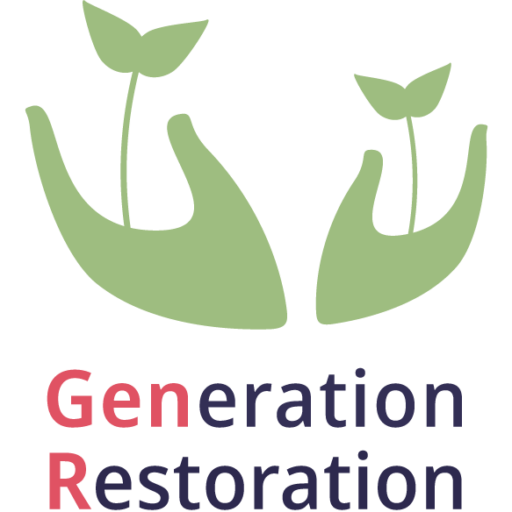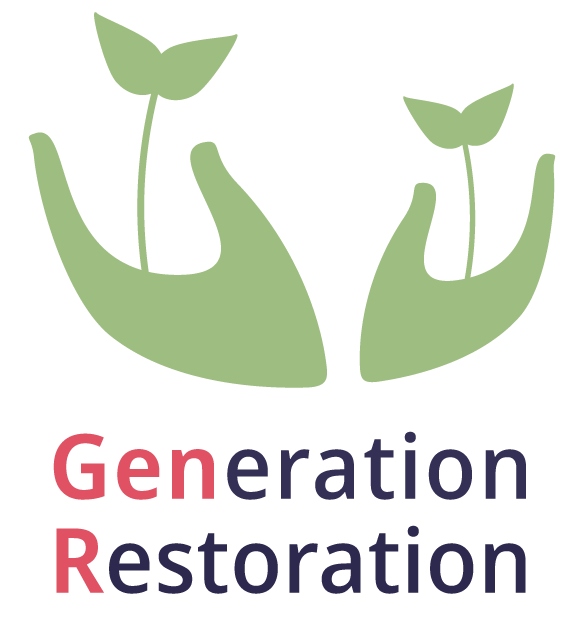
The Green Releaf Initiative
Green Releaf was founded by Sarah Queblatin in 2017 in Marawi (Philippines). The purpose of the initiative is to transform the narrative from Disaster Risk Reduction (DRR) to nature-based resilience and regeneration by using permaculture practices. Upon that Green Releaf focuses on empowering refugees and local communities with skills while partnering with NGOs, Governmental Agencies, and educational institutions to ultimately blueprint and scale projects that are successfully proven.
How it all Started: Restoration in the Philippines
The founders’ journey began in 2009 when they witnessed relief efforts relying on plastic packaging and processed food to address the floods and mass displacement caused by Typhoon Ketsana. This prompted the question of how to address problems without perpetuating the same factors that caused them.
Their inquiry led to the development of a circular design called “Green Releaf,” which eventually led them to study permaculture and ecovillage design education. In 2017, Green Releaf became a registered non-profit organization with seed funding from LUSH Re:Fund.
How the Project has Developed: Permaculture Gardening with IDPs
From 2021 to 2023 Green Releaf has prototyped two initiatives aimed at supporting communities recovering from radical changes.
Garden to Garden Releaf: From Displaced to Co-creative
The first initiative, Garden to Garden Releaf, focuses on immediate food security, water, sanitation, and hygiene (WASH), and overall well-being. After the ISIS allied siege of Marawi City in 2017, Green Releaf supported around 500 internally displaced people (IDPs) by setting up rainwater catchments and providing vegetable food packs sourced from nearby organic farms. They also established a co-created garden with IDPs, which eventually provided a garden-based livelihood for the community in the refugee camp. Additionally, they partnered with organizations like the Global Network on Religions for Children to create school gardens for displaced children in a tent city.
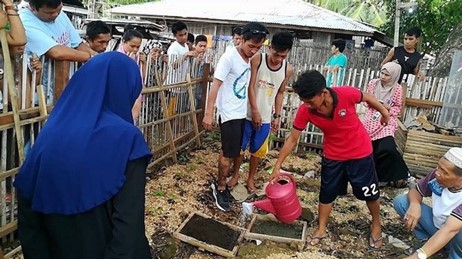
Garden at Madrasa with Marawi Siege IDPs demonstrating what they learned. Photo © Sarah Queblatin
Witnessing Trees Project: Regeneration after Typhoons
The second initiative, known as the Witnessing Trees Project, draws inspiration from old growth trees that have withstood the test of time and witnessed historical events. Green Releaf recognizes the significance of trees in climate-vulnerable countries and their role as lifelines during floods and typhoons. They have implemented an ecosystem-based disaster risk reduction (EBDRR) project in the indigenous community of Balawag in Kalinga province. This project combines permaculture principles with ecosystem restoration to address crop loss caused by typhoons and soil degradation due to land conversion to genetically modified (GM) corn. They have trained indigenous leaders, farmers, and students in practical permaculture, with plans to integrate the regenerative practice into the agricultural curriculum of the local school.
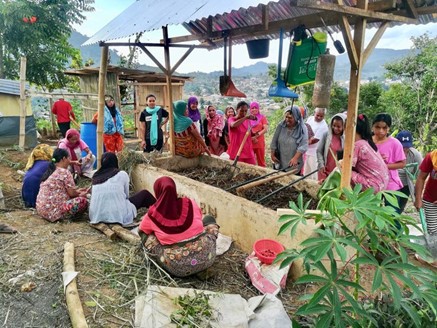
Women IDPs at the resettlement with their vermicomposting system. Photo © Ash Abdullah
Re:Source Regeneration Labs: Restorative Design Solutions
In their third year, Green Releaf aimed to scale up their impact and enable collective change. They designed Re:Source Regeneration Labs as a regenerative design lab and learning journey, integrating permaculture and ecovillage design principles with Theory U and Filipino problem-solving approaches. Green Releaf initiated a regenerative aid lab, bringing together informal aid actors to design systemic solutions for those affected by the Taal Volcano eruption. They have also activated ecosystems for regeneration, particularly in the areas of zero waste, circular economies, and marine litter reduction.
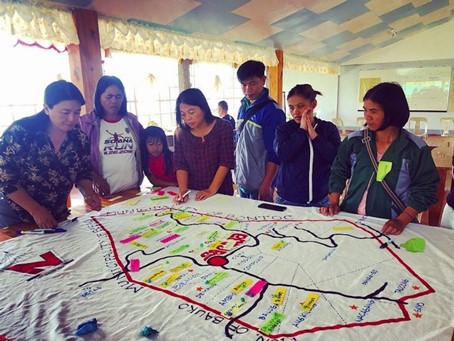
Ecosystem mapping of organic farming and ecotourism initiatives in Sagada Mountain Province. Photo © Sarah Queblatin
Prospects for Regenerative Transitions from Displaced to Resilience
Green Releaf’s journey is ongoing, and they are preparing to replicate and scale their initiatives while completing projects that were temporarily halted due to the COVID-19 pandemic. They are launching “Living Story Landscapes” to enhance permaculture work in indigenous communities and honor traditional ecological knowledge. Additionally, their “Regenerative Transitions” programme, co-designed with the indigenous village of Balawag and the local government, aims to continue the Witnessing Trees project and transition into a five-year regenerative development plan. They are also planning a regenerative food ecosystems lab to bring together partner cities and municipalities for a landscape approach to food, aiming to prevent further natural disasters and address hunger exacerbated by the pandemic.
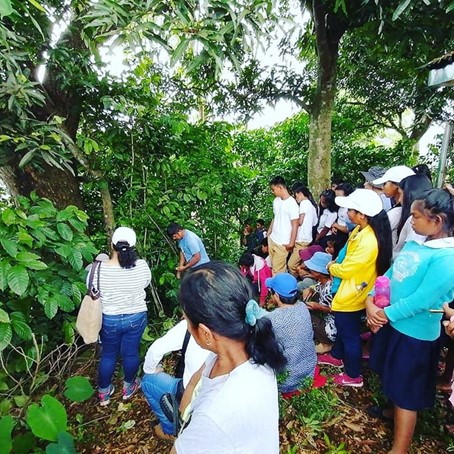
Promoting the value of agroforestry system for mature coffee trees in Kalinga in partnership with Department of Trade and Industry. Photo © Gumay Tenda
Titel photo © Sarah Queblatin
Now: Participate!
Do you want to learn more, get involved, or simply keep informed?
Sign up to receive updates on Refugees & Restoration!
Copyright © 2024 Generation Restoration – Let’s restore 🙂
